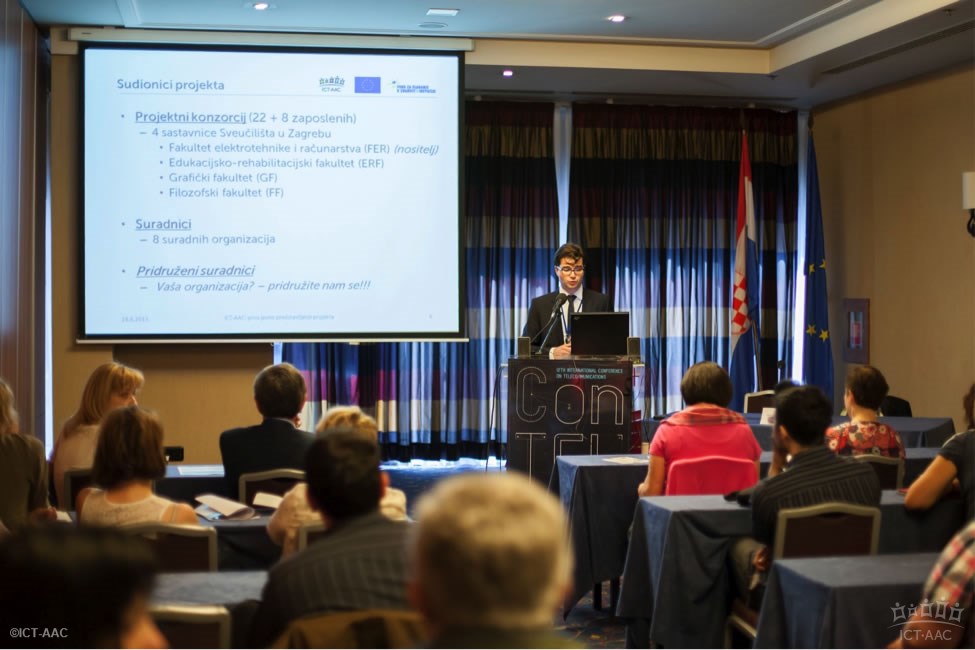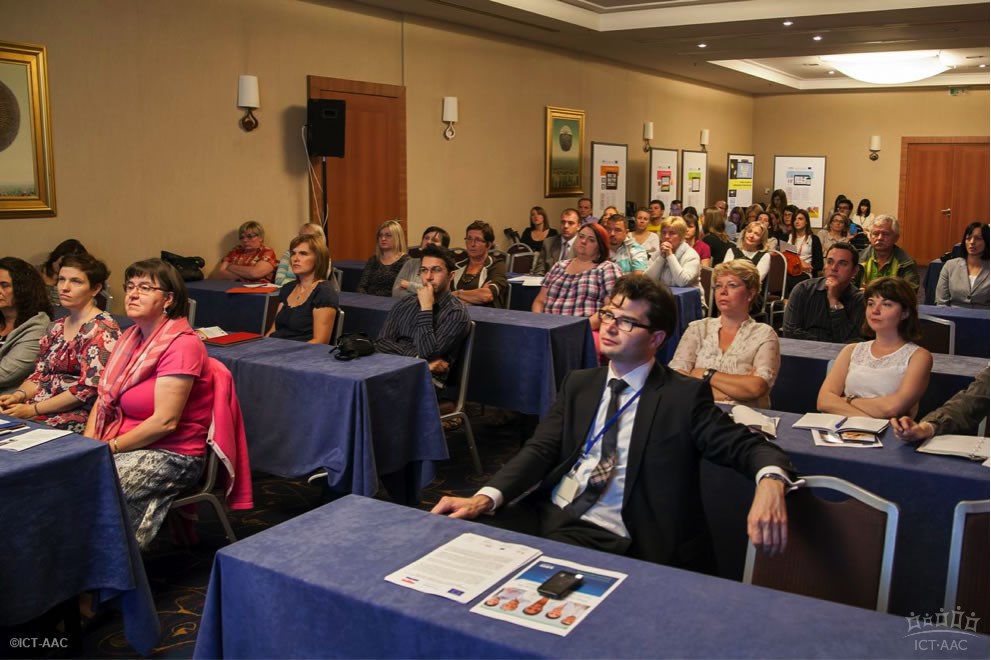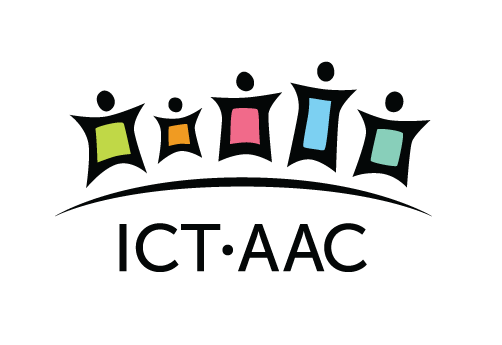Joining the European Union with innovative information and communication services designed to increase a social inclusion
Croatia joined the European Union (EU) as the 28th member state on July 1, 2013. Just three days earlier, on June 28, the visibility event of the “ICT Competence Network for Innovative Services for Persons with Complex Communication Needs (ICT-AAC)” project was held. The project is funded through the "Science and Innovation Investment Fund" as the part of the "IPA component IIIc" funding mechanism by which the EU helps the candidate countries in the harmonization and implementation of the acquis communautaire as well as in the preparation for the use of Structural and Cohesion Funds after accession to the EU. The ICT-AAC project is focused on the research and development of innovative information and communication technology (ICT) services for people with complex communication needs (CCN) in Croatia as well as the transfer of know-how in the field of augmentative and alternative communication (AAC) between participating academic institutions and knowledge-based small and medium enterprises (SMEs).
People with CCN are those who for various reasons cannot communicate in the usual way. CCN are often associated with autistic spectrum disorders, physical and/or intellectual disabilities and hearing impairment. The ICT-AAC project will include children, youth and adults involved in programs of care, education and rehabilitation in Croatia, primarily with the aim of building a competence network of stakeholders from the academic, industrial and (non-)governmental domain with the knowledge and capacity in AAC design. Better services in the field of AAC that will improve access to information and enhance social inclusion (i.e., e-inclusion) will be developed. Furthermore, time spent on the preparation of communication and learning materials for people with CCN will be reduced. All mentioned changes will enhance communication and learning as well as broaden employment opportunities for the specified population.
A consortium of four faculties of the University of Zagreb is supported by the eight associated organizations in the implementation the ICT-AAC project. Three associates are Croatian knowledge-based SMEs (iStudio, Diversitas IT systems and HSM Informatika) and five associates are professional associations and institutions dealing with people with CCN (Polyclinic SUVAG Osijek, Inclusion Support Center IDEM, Croatia Down Syndrome Association, Croatian Association on Early Childhood Intervention and Parental association OKO). During the implementation of the ICT-AAC project the competency network will be extended with new members from the Croatian academic community, as well as industry and (non-)governmental organizations. We invite all interested parties to contact the project participants in order to obtain additional information about the ICT-AAC project as well as get further information about the possible involvement in the competence network.
Visibility events are very important activities within the ICT-AAC project, since their purpose is to present the project results to the public. During the two years of the ICT-AAC project implementation four visibility events will be organized. The first visibility event, which brought together about 150 participants from academia, industry and (non-)government domain, was collocated with the 12th International Conference on Telecommunications (ConTEL 2013), one of the leading Croatian conferences in the field of ICT. In his opening speech, the project coordinator Vedran Podobnik, PhD from the Faculty of Electrical Engineering and Computing presented the main objectives of the project: "Establishing a framework for the efficient transfer of knowledge between the Croatian academic institutions and industry, especially SMEs, is one of the biggest challenges in the process of raising the level of innovation and competitiveness of the Croatian economy. Furthermore, social inclusion based on ICT is an important theme of the "Digital Agenda", one of the major initiatives set up by the EU to implement the objectives of the “Europe 2020" strategy aimed at smart, sustainable and inclusive growth. Croatian scientists gathered in the consortium of four constituents of the University of Zagreb – Faculty of Electrical Engineering and Computing (FER), Faculty of Education and Rehabilitation Sciences (ERF), Faculty of Graphic Arts (GF) and Faculty of Humanities and Social Sciences (FF) – collaborate on the project that addresses both of these challenges". In the continuation of the visibility event team leaders of each consortium partner presented the role and activities of their institutions in the implementation of the ICT-AAC project. Zeljka Car, PhD (FER) emphasized the importance of a multidisciplinary approach in the field of AAC based on ICT and Nina Pavlin-Bernardic, PhD (FF) prepared an explanation of the importance of evaluating designed innovative solutions in order to assess new applications and assure their compliance with user requirements. Furthermore, Jasmina Ivsac Pavlisa, PhD (ERF) emphasized the key role of education and clinical work as well as the importance of the environment whose support is necessary during the AAC implementation and Lidija Mandic, PhD (GF) highlighted an important role of design that is reflected in the formatting of information to AAC users. The visibility event continued with introductions of associated organizations from the category of professional associations and institutions dealing with people with CCN. Dinka Vukovic presented the "Croatia Down Syndrome Association" and the "Parental association OKO", while Ivana Sekol described the "Polyclinic SUVAG Osijek". The presentation of a corporate social responsibility example followed, where Kresimir Musa explained what motivated his company CROZ to donate a portion of their employees' time and help people with CCN in a way they can help most effectively – through the development of the Android version of one of applications. The formal part of the first visibility event of the ICT-AAC project was concluded by Marin Vukovic, PhD (FER) who presented a vision for new applications to be developed in the next phases of the ICT-AAC project implementation. Afterwards, the visibility event was continued in a more relaxed tone through networking of event participants as well as the exhibition which presented the initial results of the ICT-AAC project.

ICT-AAC project coordinator Vedran Podobnik, PhD presents the project and invites all interested organizations and institutions to get involved in the project as supporting associates

The first visibility event of the ICT-AAC project gathered around 150 participants from academia, industry and (non‑)government domain









